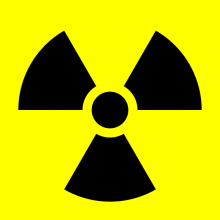The top Iranian negotiator expects “a very intense few days” coming up as his team seeks to finalize a nuclear deal with the major world powers ahead of a June 30 deadline, reported Iran’s Press TV. The sides developed the general outline of a deal earlier this year, setting the end of this month to reach a final arrangement that would provide Iran sanctions relief in exchange for concessions on their nuclear program.
Iranian Foreign Minister Mohammad Javad Zarif said it may take a “few days” more than the deadline to achieve a deal, but sounded unexpectedly optimistic in saying that there is “a good possibility” it could be done in the next couple weeks.
PressTV quoted Zarif as saying on Monday after meeting with the British, “We discussed how we can expedite the discussions in Vienna for the next few difficult days that we have ahead of us.” The Americans also are highlighting the challenging nature of the talks.
“Progress is being made, but it’s slow,” US spokesman John Kirby was quoted as saying Monday in a State Department press release. “The discussions are still tough. There are still issues that need to be resolved. And nobody, I don’t think, is overpromising here. And as we’ve said many, many times, no deal is better than a bad deal. And that’s where we are.”
Kirby was peppered with questions about the June 30 deadline, and while he wasn’t adamant the deadline needed to be reached, he also considered it to be a positive motivator.
“Deadlines are a good thing because they do help drive outcomes,” said Kirby. “I just think that it would be counterproductive for me to speculate up here and hypothesize about any possible work past June 30th.”
One thing that’s not impacting the Americans is the Iranian legislature. Reporters asked Kirby about reports that Iranian parliamentarians recently chanted “Death to America,” and he was generally unconcerned.
“These are chants we’ve heard before from Iran,” noted Kirby. “I think what’s more telling is less the chants or perhaps the vitriol by some hardliners and more the fact that we are sitting down with a team in Vienna and progress is being made… [The chants are] certainly not helpful to the kind of dialogue that we’re trying to pursue, but is it going to have a major impact on the negotiating teams in Vienna? No.”
Israel and American legislators have expressed concern that the deal being hammered out with Iran is too watered down and could enable Iran to either cheat their way to nuclear weapons soon or open the door down the road.
For his part, Israeli Prime Minister Benjamin Netanyahu has repeatedly highlighted Iran’s nefarious activities across the globe as a key reason to ensure the deal with Iran is a good one.
(By Joshua Spurlock, www.themideastupdate.com, June 22, 2015)

